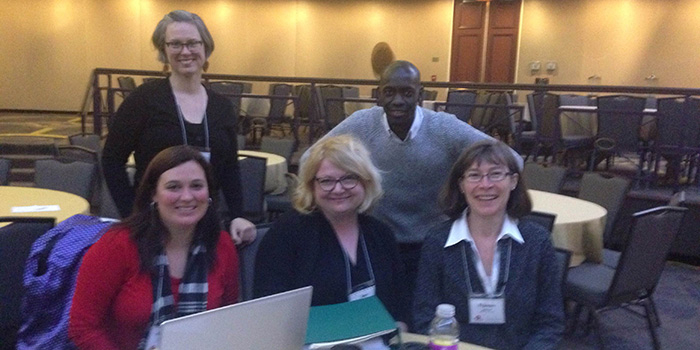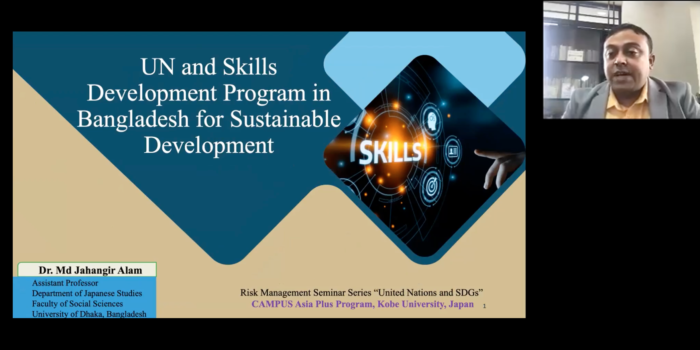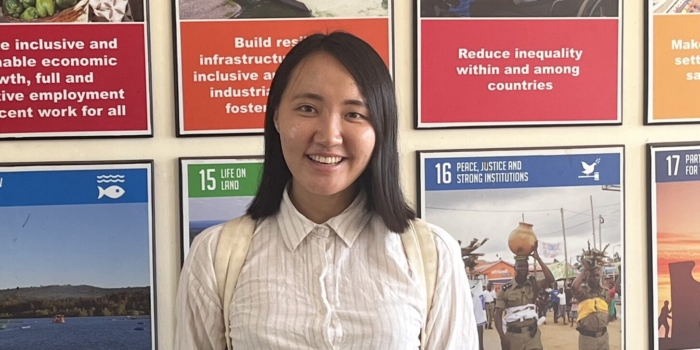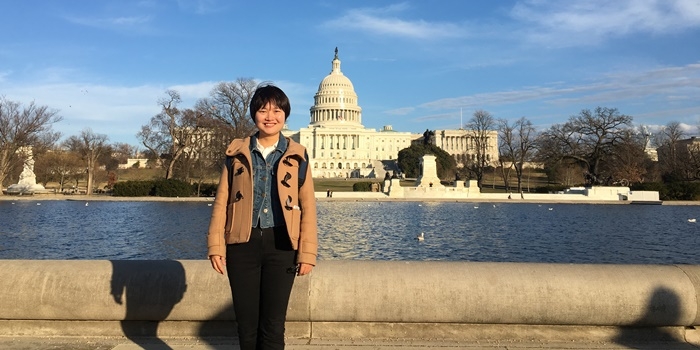This is a report detailing my participation in the two-phased field study exercise which was conducted from 8th to 20th March 2015. The field exercise is an annual event planned, organized, coordinated and led by Dr. Keiichi Ogawa (Professor). The study lasted for 16 days, including travel days and attracted participation from 12 students (i.e. 11 from Kobe University and 1 from Kyoto University). The purpose of the field study is to enhance and/ or broaden the knowledge of the participating students as regards international education development.
The first phase of the field study involved attending the 59th annual conference of the Comparative and International Education Society (CIES 2015), which lasted from 8th – 13th March. The theme of the conference was; “Imagining a Humanist Education Globally” and the venue was Washington Hilton Hotel. I participated in the New Scholars Dissertation Mentoring Workshop (NSDMW), where I shared my research with three other doctoral students and two professors from US Universities. The NSDMW was a very unique opportunity for me to present my research and receive detailed comments and guidance from fellow doctoral students and professors. The session I presented in was titled; “Dissertation Workshop 7: Primary and Secondary Education.” I chaired a session titled; “Challenges and opportunities for education in Africa.” In addition, I attended two sessions namely; “Utilization of findings: Exploring how multi and bi-lateral M&E priorities influence the ‘why’, ‘what’ and ‘how’ of education projects” and “How can ECCD benefit different populations?”.
The second phase of the field study exercise, lasting from 16th – 20th and I participated in several pre-arranged meetings with key experts in education development and experts in academia. All the meetings were arranged by Dr. Keiichi Ogawa. The meetings were in the World Bank, George Washington University, FHI360 and Hager Sharp. At the World Bank, I attended meetings with Dr. Harry Patrinos, a Manager at the World Bank’s education sector and Dr. Luis Benveniste, a Lead Education Specialist. Moreover, I met Dr. Vinay Bhargava, a chief technical adviser and a board member at the Partnership for Transparency Fund and several Japanese specialists in education development and M&E. I met Dr. Tomomi Miyajima, Dr. Shinya Takamatsu, Dr. Susumu Yoshida and Mr. Hiroshi Saeki. Besides attending the above scheduled meetings, I took the liberty of visiting the library in the World Bank. The purpose of my visit to the library was to review literature related and relevant to my doctoral research project.
At George Washington University (GWU), I took part in a very stimulating and informative discussion involving Prof. Ogawa, students from Kobe University and students from GWU. The students from GWU are under Dr. James H. Williams, who is an Associate Professor International Education Program and Director, Office of International Activities. During the meeting, we discussed various issues regarding international education development and professional career development.
The meeting in FHI360 was unique because we were joined by students from the University of Minnesota. While at FHI360, we met with 5 officers who shared with us their first-hand experiences in the field of international education development as well as career development in the international development field, especially in conflict and post conflict regions/ countries. During the meeting at Hager Sharp, the officers gave us an overview of the education system in the United States, especially funding, administration and assessment. This information was very insightful in the context of education the United States. In addition to the above meetings, I was able to hold informal meets with Dr. Eduardo Velez Bustillo and his family, and Dr. Robert Prouty and his family.
Taking part in this field study exercise provided me with the opportunity to learn valuable lessons in the area of international education development and international work environment in the context of education discipline.
I wish to extend my deepest gratitude to Prof. Ogawa for his constant encouragement and support during the course of this field study exercise. In the same vein, I wish to say thanks to all Ogawa Seminar Alumni in Washington DC (Dr. Dr. Shinsaku Nomura, Dr. Mari Shojo and Ms. Miho Nomura) for their warm support and encouragement.
Jeje Moses Okurut
Doctoral Student
Related






